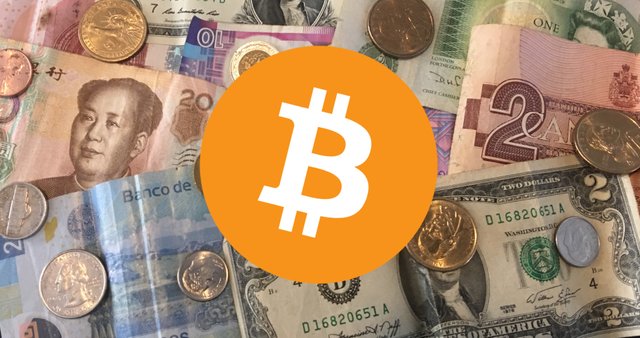 Things are changing rapidly in the new arena that Bitcoin has initiated. We are living on the legal edge, as people's understanding of this technology and the government's perspective for financial regulation of it is getting defined live in front of us.
Things are changing rapidly in the new arena that Bitcoin has initiated. We are living on the legal edge, as people's understanding of this technology and the government's perspective for financial regulation of it is getting defined live in front of us.
While the topic is complex, the legal framework for monitoring it is rooted in the existing structures that have been working to keep economic technologies on the rails for decades. Now, I'm not a heavy trader nor any sort of Wall St. insider so my information depth is evolving in realtime right along with the decisions being handed down. However, I think it is critical that the average person like myself and possibly like yourself have a better grasp of what is occurring so that our discussions with each other as well as friends and family utilize terminology that put us at the same table.
Personally, I think it's important that we keep one eye on innovation and one eye on the folks working to monitor the risks inherently surrounding any new industry or venture. What's that saying about "an ounce of preparation being worth a pound of cure?"
 Luckily there are folks willing to put in the effort to advance the discourse with regulative bodies such as the Securities and Exchange Commission (SEC) and Commodity Futures Trading Commission (CFTC) because as Bryce Weiner (developer of Tao Network [XTO]/Altmarket and many other music industry-related ventures) phrased it "information symmetry" is critical for and a reflection of a healthy market. This article is primarily a mirroring of a few conversations I've had with him recently on the phone and via Twitter regarding these issues. Because fundamentally it isn't a good idea to just stick your fingers in your ears and start singing "la la la la" to drown out the conversations you don't want to hear.
Luckily there are folks willing to put in the effort to advance the discourse with regulative bodies such as the Securities and Exchange Commission (SEC) and Commodity Futures Trading Commission (CFTC) because as Bryce Weiner (developer of Tao Network [XTO]/Altmarket and many other music industry-related ventures) phrased it "information symmetry" is critical for and a reflection of a healthy market. This article is primarily a mirroring of a few conversations I've had with him recently on the phone and via Twitter regarding these issues. Because fundamentally it isn't a good idea to just stick your fingers in your ears and start singing "la la la la" to drown out the conversations you don't want to hear.
Words and Definitions
I'm not going to reinvent the wheel and putting my personal understanding aside, for this discussion "crypto" should be understood to be short for "cryptocurrency" and will not be a truncated version of one of it's parent technologies: "cryptography". Perhaps you recall a few months back when the SEC declared that both Bitcoin and Ethereum were not classified as "initial coin offerings" (ICOs)?
I'm not versed enough in the legal intricacies of that designation to insert myself into the derivative debates about how that decision came to be and whether it is right (I've only been paying attention to the entire crypto space attentively for a little over a year). However, it does carry some weight in regards to many of the other token offerings that tout blockchain as a revolution to business operations and seek to raise huge sums of money to launch their efforts to market.
It is likely this approach to raising venture capital that has lead to the hammer being brought down on a number of them. While the SEC declaration spells out how to properly offer a token and blockchain-based security, it isn't the end regulatory oversight. As mentioned earlier, the CFTC gets a say as well in regards to commodities not seeking vast monetary infusion prior to those offerings. I believe there is a fundraising cap of $100k that keeps commodities from being declared as securities and allows entrepreneurs to avoid additional rounds of litigious heavy-lifting and filing of documentation for review by the SEC.
Is this all making sense for you? It's a lot to process, I know - here's a few more layers of complexity. As Mr. Weiner clarified "there are commodities and securities and blockchains can exhibit traits of either based on how it is executed." And we haven't even really addressed what money is yet. Well, as it turns out, he added a "blockchain commodity...can be money". As readers of David Graeber's book "Debt: The First 5,000 Years" are aware, money has taken many forms across history such as commodities and more recently fiat. I hope this isn't confusing for you because it was at this point in the conversation that these points clicked and inspired me to type all this out.
Currently we are seeing that there is fluidity about how to define crypto technology but perhaps we need to sort out any fluidity in the language surrounding blockchain, tokenization, and what rightly deserves to be called a cryptocurrency. Hopefully this article helps you to understand what is occurring - writing it has certainly clarified portions of my view (which is always adapting) about the topic.



